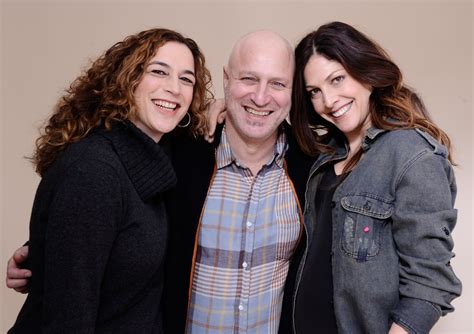A Quote by Nicole Krauss
You're looking for ways always as the writer to bring readers into intimacy, you with them with you. Photos can sometimes do the opposite, create distance and perspective, but these somehow didn't. They somehow bring the reader closer.
Related Quotes
My readers have to work with me to create the experience. They have to bring their imaginations to the story. No one sees a book in the same way, no one sees the characters the same way. As a reader you imagine them in your own mind. So, together, as author and reader, we have both created the story.
For me, one of the reasons I love this form - the personal essay form - is because it's a way of forming an intimacy with the reader. What I'm saying to the reader is: I'm going to tell you something; I'm going to be generous; I'm going to offer. The confession, on the other hand, is sort of an imposition because you're asking the reader to forgive you or somehow exonerate you or say, "Hey, I'm even worse." But what I'm interested in doing is being generous and offering a perspective or suggesting a way of thinking about something.
Books are just dead words on paper and it is the readers who bring the stories alive. Previously, writers wrote a book and sent it out into the world. A couple of months after publication letters from readers might arrive. And, leaving aside the professional reviews, it is really the reader's opinions that the writer needs. They vote for a book - and a writer - with their hard earned cash every time they go into a bookstore (or online - that's my age showing!) and buy a book.
Always the seer is a sayer. Somehow his dream is told; somehow he publishes it with solemn joy: sometimes with pencil on canvas, sometimes with chisel on stone, sometimes in towers and aisles of granite, his soul's worship is builded; sometimes in anthems of indefinite music, but clearest and most permanent, in words.
I dislike that premise implies that a fiction writer is incapable of dreaming up stories that can bring readers to tears, that if you are lucky enough to be living a pretty sedate life ,as I am, you've got nothing worthy of writing about, that you're incapable of making a reader's gut wrench.Frankly, that's what makes readers nervous, the sorcery of you or me or any good fiction writer making up characters who feel like real people, of telling a story that feels true but isn't.
We are fascinated by the club and the dancefloor; we are also fascinated by very nuanced sonic experiences, and somehow we are convinced that we can bring together these two contradictory forces and create some kind of sonic supernova. This would be the candle that has always been at the center of our project.
The ear is the only true writer and the only true reader. I know people who read without hearing the sentence sounds and they were the fastest readers. Eye readers we call them. They get the meaning by glances. But they are bad readers because they miss the best part of what a good writer puts into his work.
I have a total responsibility to the reader. The reader has to trust me and never feel betrayed. There's a double standard between writers and readers. Readers can be unfaithful to writers anytime they like, but writers must never ever be unfaithful to the readers. And it's appropriate, because the writer is getting paid and the reader isn't.







































